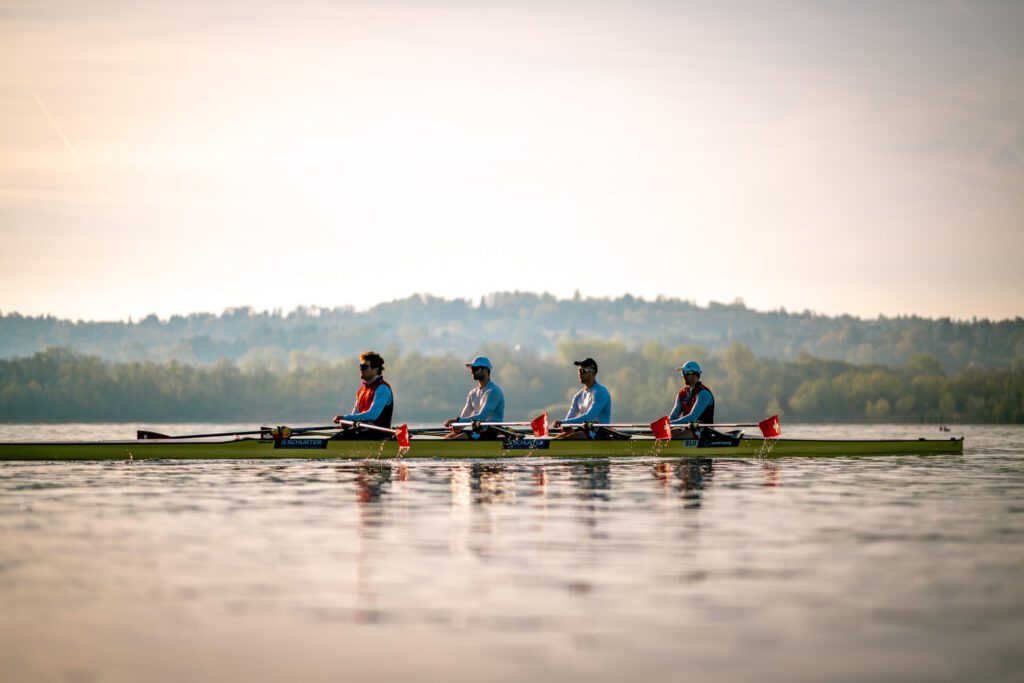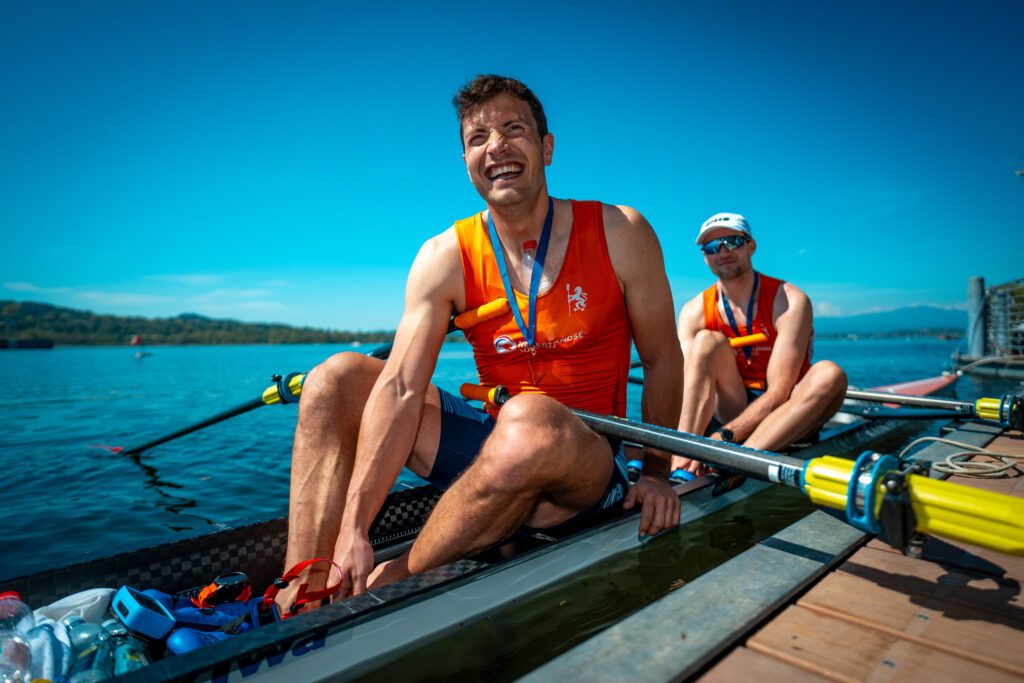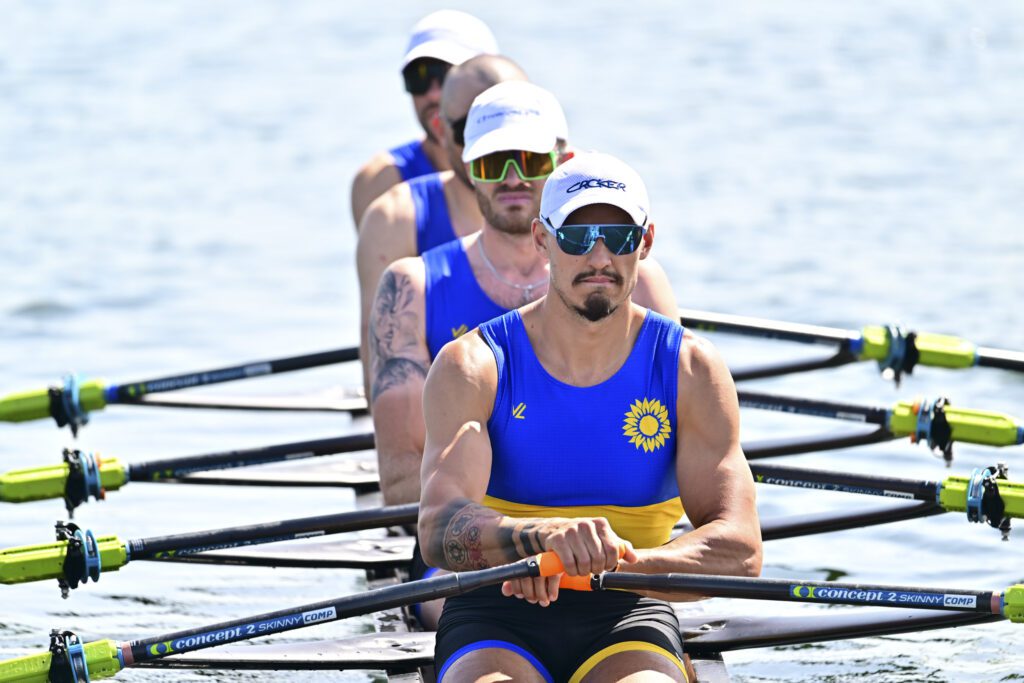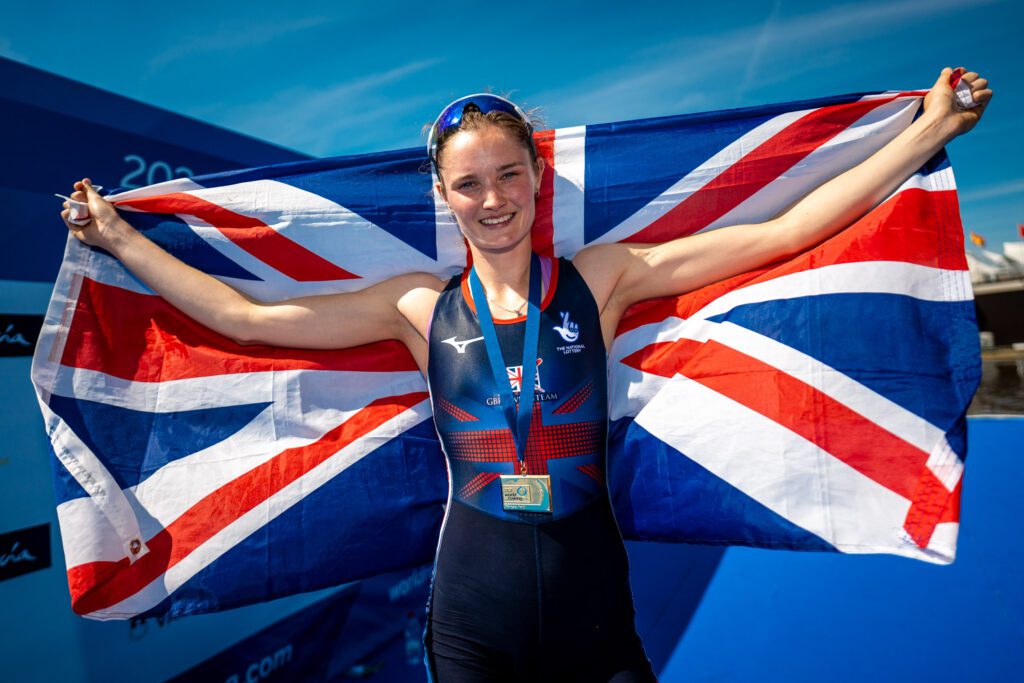In somewhat of an understatement, Rowing New Zealand Chief Executive Simon Peterson commented after the 2019 elite team announcement, ‘We had a wake-up call in 2018 with our performances at the World Rowing Championships.”
It was a case of one step forward, two steps back in 2018 for the revered rowers in the all black singlets. It was the first time since 2001 that New Zealand failed to capture a single gold medal at the premier rowing event of the year – the World Rowing Championships. Rubbing salt into the wounds, close neighbours Australia had 33 athletes return home from Plovdiv with medals, while New Zealand accumulated just six.
Momentum stalled after strong performances by the New Zealand team at the World Cups in 2018. Three golds and fourth place on the medal table at World Cup II in Linz was followed a few weeks later with a dominant five golds and first place on the medal table at World Cup III in Lucerne. It appeared that the Kiwis were on track for a more than respectable performance in Bulgaria.
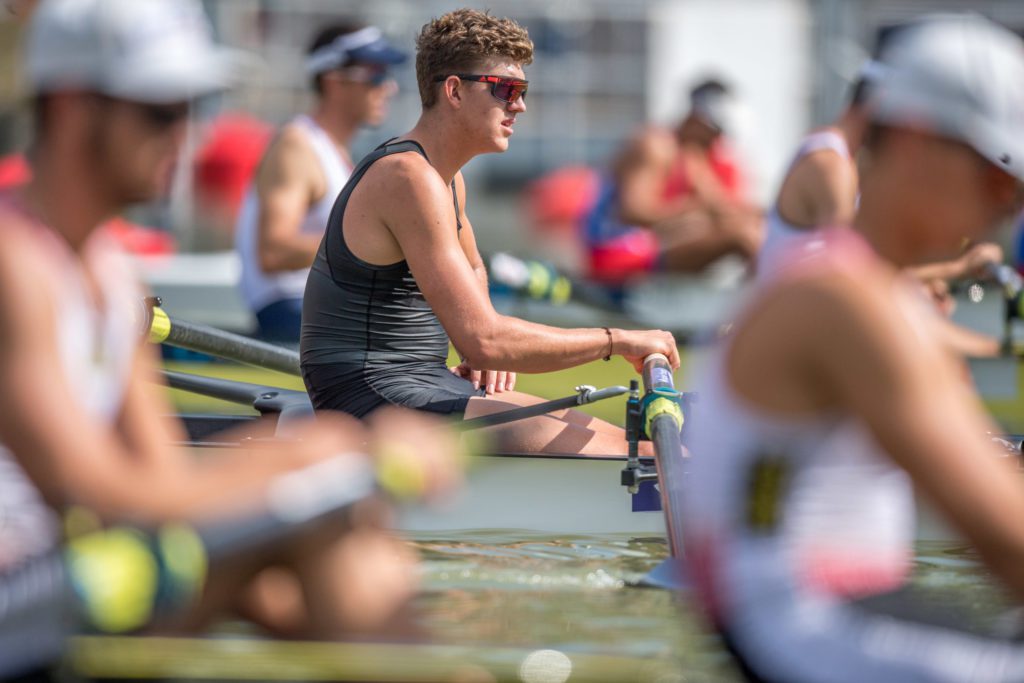
Photo Matt MAcDonald Racing at the World Champs 2018, Plovdiv, Bulgaria.
Credit Steve McArthur
Yet when it came to the world championships at the end of the summer, New Zealand’s medal table landslide of recent years – going from 2nd in 2017 to 18th in 2018 (Ireland’s relatively tiny team were 8th in 2018) – only continued. The last time the Kiwis failed to win a gold medal was in 2001, where they finished 12th overall with Ireland coming in 3rd.
This was the only other time that Ireland had beaten New Zealand on the medal table at a world championships or Olympics in a generation. Ironically, in 2001, the current New Zealand men’s eight coach – Irishman Tony O’Connor – was one of the three gold medal winners for Ireland.
2018 highlighted the chasm left in the New Zealand program’s talent pool since the Rio Olympics. Rowing NZ have sorely missed having the bankable gold medal from the Kiwi Pair of Hamish Bond & Eric Murray and also lacked the dependable Mahé Drysdale on the podium in the single.
To be fair, not much went right for the Kiwis in the latter part of their 2018 campaign.
Collisions in training resulting in a broken boat or two meant some athletes missed vital training time on the water in Europe. More injuries than normal were carried by athletes in racing, alongside the upheaval of change in the leadership of the high-performance program. But most of all, returning to a New Zealand winter after World Cup III, resulted in many athletes spending more time out of the boats in the lead up to Worlds, than what was desirable. All these factors contributed to sub-optimal results.
With all the mishaps suffered by the New Zealand team in the build up to the worlds, ultimately progressing to eight finals in Olympic class events and finishing on three podiums (with the exception of the disappointing women’s eight result) was probably not a bad return, all factors considered. Certainly, a need to re-focus but no need to push the panic button.
It was not only at elite level that the drought bit – New Zealand failed to qualify a crew for the youth Olympics in Argentina, and harvested only one gold medal in any FISA world championships, thanks to Samantha Voss in the U23 women’s single.
Gone from the Rowing New Zealand manifesto for this Olympiad is the call to boat a crew in each Olympic event at Tokyo in 2020. Funding is influencing team selection and boat class prioritisation as team selectors remain eager to satisfy the donors and sponsors who are currently financing the eight’s assault on Tokyo. This has seen the second priority being given to the women’s eight over the four – which on last year’s result was perhaps not the optimal decision.
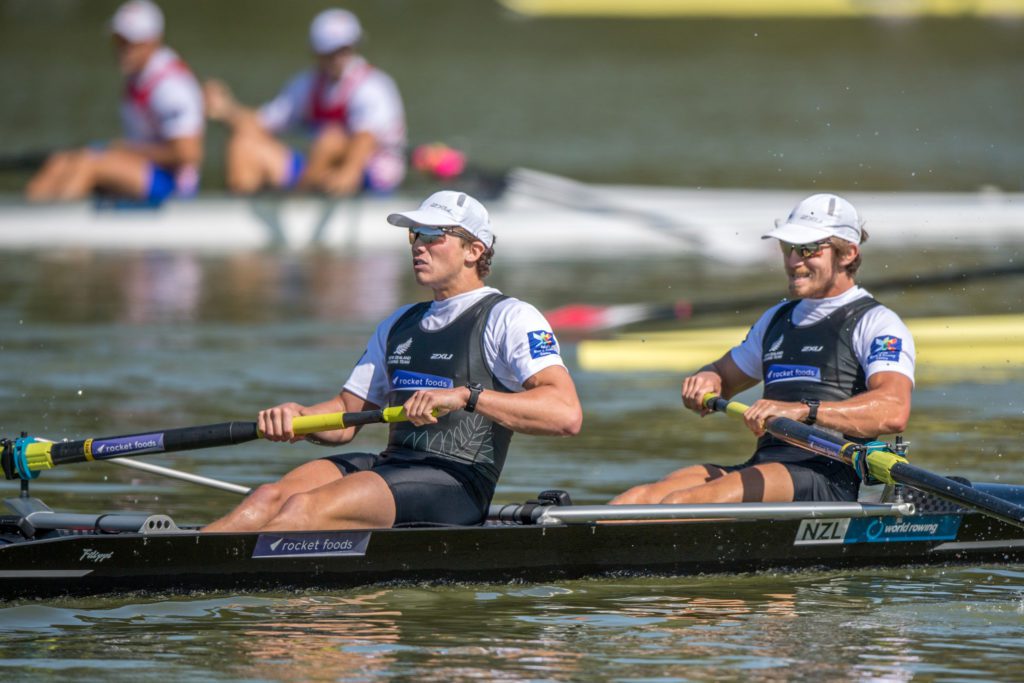
Photo Michael Brake (stroke) and Tom Murray – Racing the Finals at the World Champs, Plovdiv, Bulgaria.
Credit Steve McArthur
Despite this newfound support for the eights, New Zealand hasn’t changed course from making the small boats their highest priority. Currently the best athletes fill the seats in the men’s and women’s single, men’s and women’s double, men’s and women’s pair and both lightweight doubles.
There was an extensive pruning of the men’s eight crew following the 2018 world champs, with four ousted from the elite summer-squad. The jungle drums were beating strongly that New Zealand would boat just a men’s four in 2019. Until Hamish Bond came calling at Rowing NZ’s door that is.
The eight’s project was on life support until rowing legends Hamish Bond (returning to the fold after a two-year cycling sabbatical) and then Mahé Drysdale gave it the kiss of life. Bond and Drysdale have saved Rowing NZ from a potentially awkward discussion with their financial backers. Instead the headline news for the squad in 2019 is the rejuvenation of the men’s eight, with new crew members on board joining the spine of the crew that traces its roots to the back-to-back world championship wins at the U23s.
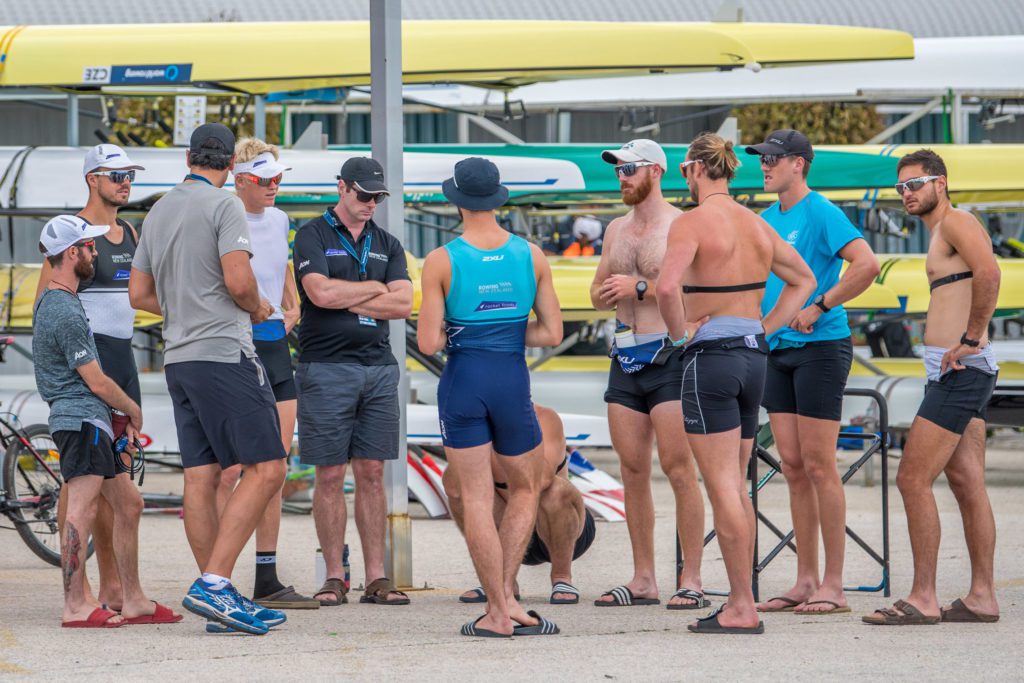
Photo The New Zealand men’s eight in Plovdiv 2018
Credit Steve McArthur
The rowing eight is woven into the fabric of New Zealand society, with the 1972 Olympic champion eight being one of the most memorable sporting moments in New Zealand history. With Bond likely to stroke the new look crew in 2019 and with Drysdale likely to be in the five seat, expect big things from this crew who could challenge the top eights in the world.
Bond and Drysedale in the eight combined with the Midas touch of coach Tony O’Connor, is certainly an exciting prospect that the New Zealand public will get behind. The lineup is looking increasingly settled, with the last bow-side seat the most contentious. The former lightweight James Lassche – technically one of the best sweepers in the program – has the experienced eights campaigners and all-round hard men Ian Seymour and Brooke Robertson to contend with. One of the three will be unlucky not to make the cut. If competition for seats is an indication of boat speed, the Kiwi eight will fly.
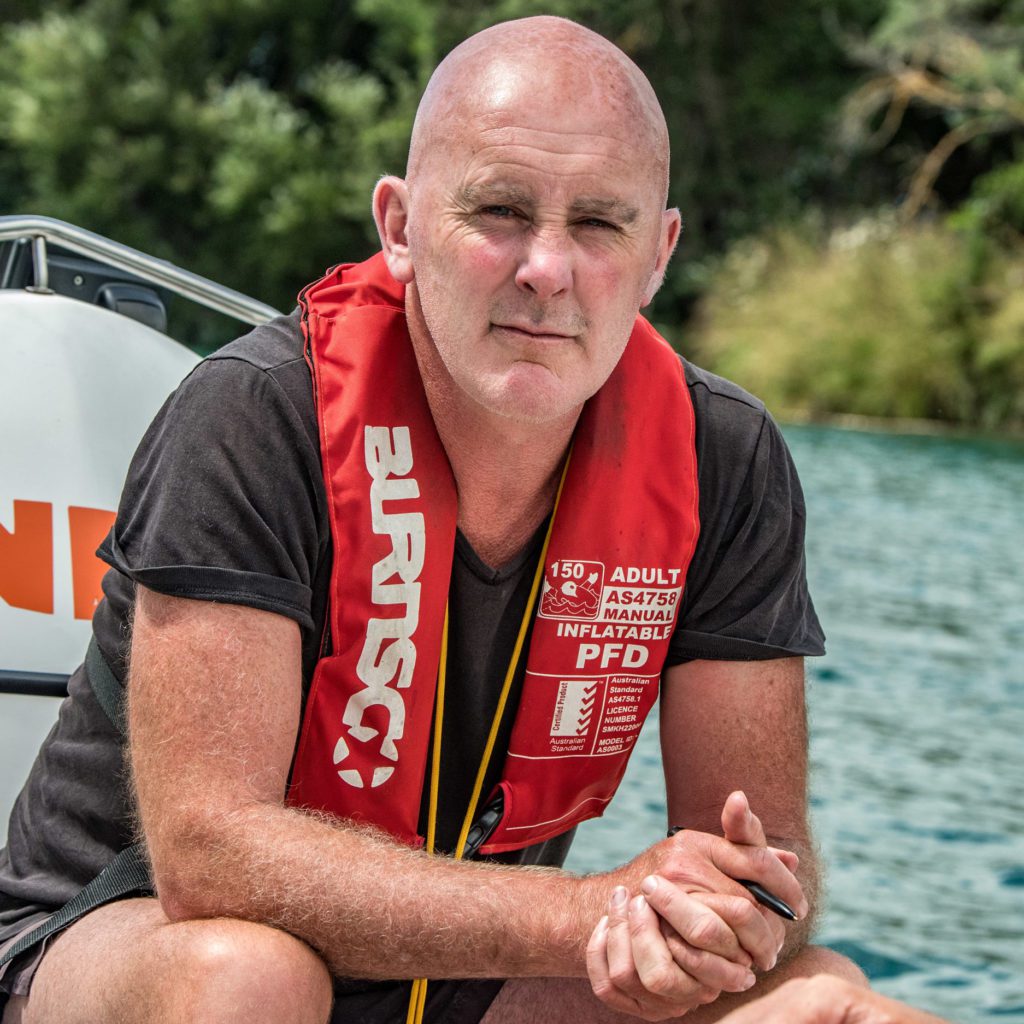
Photo Tony O’Connor
Credit Steve McArthur
As well as the new sweepers, New Zealand are welcoming back returning World Champions Emma Twigg, Sophie MacKenzie and Eve Macfarlane.
Eve MacFarlane will replace the injured Kelsi Parker in an eight that will be little changed from last year. Eve is a formidable force; she was the youngest in the entire NZ team at the 2012 Olympics and is aiming for her third Olympics in 2020. The 2015 World champion in the double will add experience and strength to the crew. In 2019, the women’s eight will not be contemplating what colour the medal is going to be, but thinking more about maximising their boat speed in every race, with the focus being solely on making Olympic qualification for next year.
There were some athletes that can count themselves as unlucky, but with such depth of talent and not enough cash in the kitty, difficult decisions were always going to need to be made. In 2019 more is expected of national sporting bodies with ensuring adequate athlete welfare, especially as they transition out of the team.
There were a few new faces named to the squad, coming in from outside of the national Summer squad system. Caleb Shephard & Isaac Grainger have returned to the elite squad after being unceremoniously dumped. While the incredible Davina Waddy has made her mark in women’s sweep rowing this summer and will be a welcome addition, probably in the four. There is little to argue against the inclusion of these talented athletes and what they will add to the team.
Fortunately, Axel Dickinson and his Bad Boys rowing movement continues to provide a safety net for those cut loose by Rowing NZ. The Bad Boys will have twelve athletes racing at Henley in July, many of whom are attempting to keep their Olympic hopes (2020 or 2024) alive, after a rough landing from their climb up the Rowing New Zealand ladder.
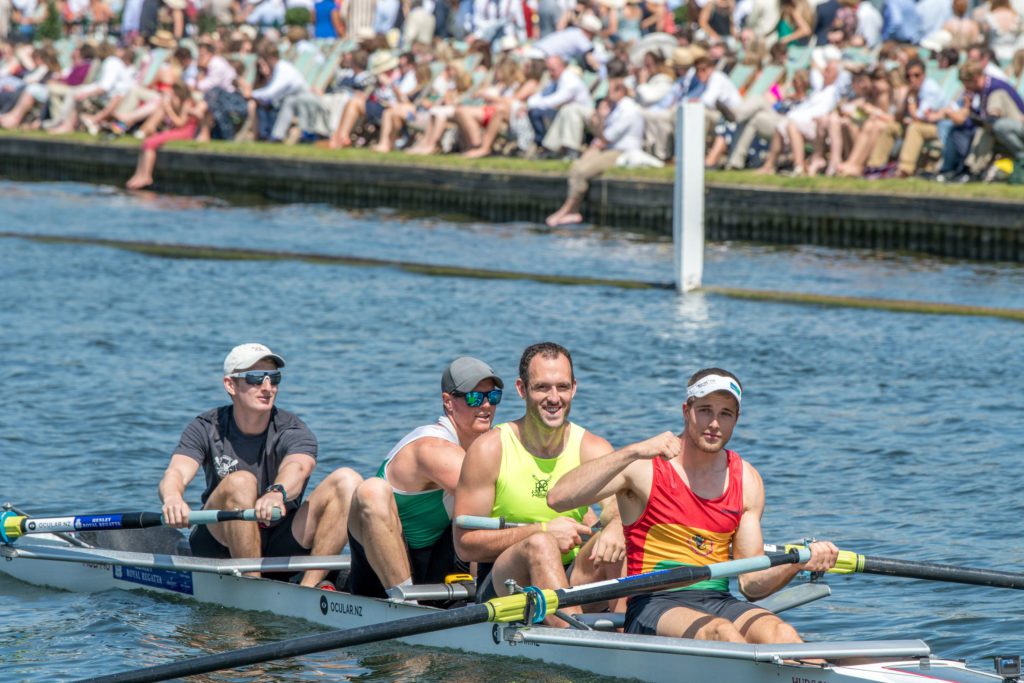
Photo Bad Boys four racing at Henley
Credit Steve McArthur
Some selections don’t add up, with a full men’s sculling squad there is one reserve for the seven competing athletes, while for the women’s sculling there are two reserves for three competing athletes. Are there underlying injury problems in the women’s sculling team? If these scullers are also covering the women’s sweep squad, why not select sweepers?
Sophie Mackenzie who has been selected in the non-Olympic lightweight single, (which she will do well in) would surely have been better utilised in a quadruple sculls crew. Mackenzie could have joined the women’s “reserve team” of the elite sculler at the past two World Championships Hannah Osborne and 2018 World U23 single sculling champion Samantha Voss. Making up a worthy quartet could either be accomplished with sculler Nicola Baker or the upcoming star of New Zealand women’s sculling, Veronica Wall.
Despite this, there is the promising combination of Voss & Osborne who will undoubtedly make a fast boat and there will be no surprise if New Zealand has two crews on a world cup podium in Poznan. This will be the first time since Lucerne in 2014 when Louise Trappitt & Rebecca Scown were joined, albeit on a higher step on the podium, by up-and-comers Grace Prendergast and Kerri Gowler in the straight pair.
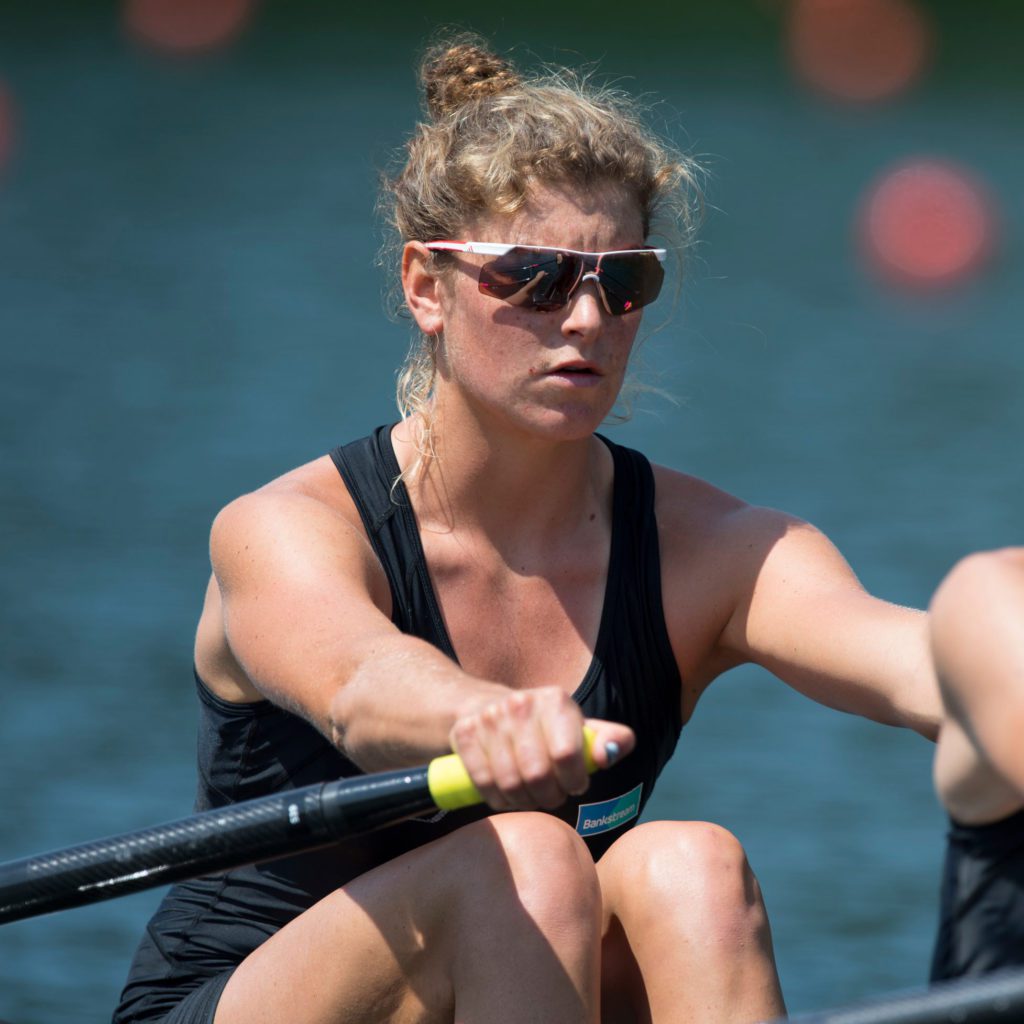
Photo Eve McFarlane in 2016
Credit Steve McArthur
With the correct coaching, a women’s quad could have had a better chance of Olympic qualification than a women’s four. But who would coach them to Olympic qualification?
There is a deficiency of elite level coaches in New Zealand and the sudden resignation of multiple Olympic champion coach Noel Donaldson has further reduced an already depleted coaching line-up. Well known Kiwi international coaches Dick Tonks and Dave Thompson are coaching Canada and Ian Wright and Don McLachlan are coaching Australia. Combined with a lack of foresight to develop strong coaches within the New Zealand school and club system, this shortcoming of coaching talent is a limiting factor for the elite crews.
Over the past two Olympiads New Zealand have established its strongest men’s sculling group that contains multiple world champions, the Olympic single sculls champion and the current single sculls world record holder. It will be interesting to see if Bond and Drysdale are using the men’s eight as a Trojan horse for an assault on the men’s single berth in Tokyo, or even a place in the men’s double.
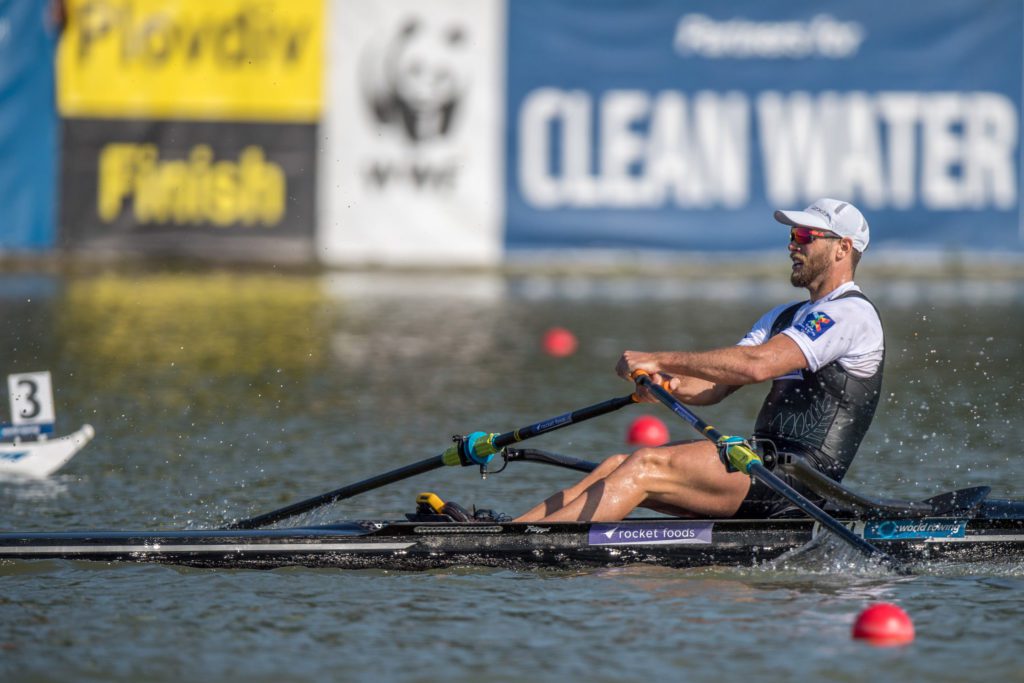
Photo Robbie Manson in Plovdiv
Credit Steve McArthur
Robbie Manson can extinguish such hopes with a podium in Linz, as too could Storey and Harris. A podium finish in Linz for those crews will certainly guarantee them those boats in Tokyo.
Of the probable crews to line up in Linz, those that are expected to qualify are as follows (should they avoid injury, illness, a boat-stopping crab or boat sinking.):
- W2-
- M2-
- W2x
- M2x
- W1x
- M1x
- LW2x
- LM2x,
- M4x
The men’s and women’s eights are bouncing back from poor form at the 2018 Worlds and will be in the qualification danger zone.
While the eights face a tough event for qualification, it is the men’s and women’s fours will be the most challenging for New Zealand to gain qualification. In an ambitious plan the U23 men’s coxless four will also head to Europe after their world championships in Sarasota – something they did after the 2018 World Champs. This time the gap between regattas will be just 28 days, compared to 40 days in 2018, however a trip across the Atlantic is better than a circumnavigation of the globe, as they did in 2018.
Recently appointed as RNZ General Manager of Performance, Judith Hamilton confirmed the priority is for qualification for Tokyo “Being only 15 months out from Tokyo, our athletes and coaches are focusing on the 2019 international season with an eye on our Olympic campaign next year’’ she said in April.
New Zealand named a strong fifty-one team early in April to compete at the World Rowing Cup II in Poznan, Poland in June and World Rowing Cup III in Rotterdam, Netherlands in July. Some crews will also race the Henley Royal Regatta in July and in a change from the previous two season the team will stay in Europe to head to the World Championships and Olympic qualification regatta in Linz, Austria. Read the official Rowing NZ team announcement here.
New Zealand don’t have a very good record of qualifying crews through the last chance and final Olympic qualification regatta in the Olympic year. It might just be only those Kiwi’s that qualify in Linz, who will end up on the start line in Tokyo. It’s an exciting year ahead for the New Zealand team and their supporters.
